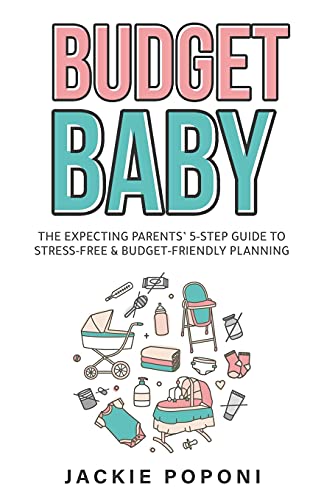When planning your finances as a new parent, start by reviewing your income and expenses to create a detailed budget that includes baby-related costs like diapers and healthcare. Update your insurance policies for better coverage and consider building an emergency fund for unexpected expenses. Regularly revisit your financial plans to adjust for changing needs. If you want practical tips to navigate this shift seamlessly, you’ll find helpful insights ahead.
Key Takeaways
- Establish a detailed budget that includes baby-related expenses and prioritize essential needs.
- Review and update insurance policies to ensure comprehensive coverage for the new family member.
- Build an emergency fund covering three to six months of living expenses for unforeseen events.
- Regularly revisit and adjust financial plans as family circumstances and expenses evolve over time.
- Incorporate additional family considerations, such as pet care and long-term financial security, into your planning.

Becoming new parents is exciting, but it also brings a flurry of financial changes. As you adjust to life with your new baby, it’s crucial to develop effective budgeting strategies that help you manage these new expenses without feeling overwhelmed. Start by reviewing your current income and expenses, then create a detailed budget that accounts for added costs like diapers, formula, clothing, and healthcare. Prioritize essential spending and identify areas where you can cut back, ensuring you’re prepared for both predictable and unexpected expenses. A well-structured budget acts as your financial roadmap, giving you clarity and control during this busy time.
In addition to budgeting strategies, insurance considerations play a significant role in safeguarding your family’s future. With a new baby, you’ll want to review your health insurance plan to confirm that your child is covered and understand what medical services are included. It might be time to update your policy or explore options that offer better coverage for pediatric care and maternity services. Also, consider life insurance policies to provide financial security should anything happen to you or your partner. Term life insurance often offers affordable protection and can ensure your child’s needs are met even if you’re no longer around. Don’t forget to review your disability insurance, which can replace income if you’re unable to work due to illness or injury related to childbirth or caring for your newborn.
Balancing these insurance considerations with your budgeting strategies helps create a stable financial foundation. It’s wise to set aside an emergency fund—aiming for three to six months’ worth of living expenses—to cover unexpected costs like medical emergencies or sudden job loss. Automating savings can make this easier, ensuring you consistently contribute without manual effort. Additionally, understanding your dog names can help you choose a pet that fits well into your evolving family life, providing comfort and companionship during this transition. As your family’s needs evolve, revisit your budget and insurance policies periodically. Adjustments might be necessary as your child grows, medical costs change, or your income shifts.

Budget Baby: The Expecting Parents' 5-Step Guide to Stress-Free & Budget-Friendly Planning
As an affiliate, we earn on qualifying purchases.
As an affiliate, we earn on qualifying purchases.
Frequently Asked Questions
How Can I Balance Saving for College and Retirement Simultaneously?
Balancing saving for college and retirement involves smart investment strategies and taking advantage of tax benefits. You should prioritize retirement accounts like 401(k)s or IRAs for long-term growth, while exploring college savings plans such as 529 plans. Use tax advantages to maximize your savings, ensuring you’re funding both goals effectively. Regularly review your plan, adjust contributions, and consider consulting a financial advisor to stay on track.
What Insurance Policies Are Essential for Newborns and New Parents?
Imagine building a fortress around your family’s future. You need health coverage to shield your newborn from unexpected health storms and life protection policies to guard your loved ones if the unthinkable happens. Essential insurance policies include a thorough health plan and a life insurance policy that guarantees your family’s financial stability. These safeguards act as your fortress, providing peace of mind as you navigate the exciting journey of parenthood.
How Should I Adjust My Budget for Unexpected Medical Expenses?
When adjusting your budget for unexpected medical expenses, start by reinforcing your emergency fund to cover potential costs. Incorporate medical expense planning into your monthly budget, setting aside a specific amount for unforeseen healthcare needs. Review your insurance coverage to understand what’s included, and consider increasing your deductible or premium if it helps manage costs better. Staying proactive with these steps helps ensure you’re financially prepared for any surprises.
When Is the Best Time to Start a College Fund for My Child?
The best time to start a college fund for your child is early, ideally as soon as they’re born. This allows you to take advantage of compound interest and grow the savings over time. You can also encourage gift contributions from family and friends, which can boost the fund without straining your budget. Starting early guarantees you’re more prepared financially when college expenses come up.
How Do I Plan Financially for Parental Leave and Income Loss?
You plan financially for parental leave by understanding maternity benefits and paternity leave policies. You save consistently, explore employer-provided paid leave options, and consider short-term disability insurance. You budget carefully, set aside emergency funds, and coordinate with your partner to guarantee income loss is manageable. You stay informed about your rights and benefits, preparing a financial cushion that supports you through this important shift.

The Preemie Primer: A Complete Guide for Parents of Premature Babies — from Birth through the Toddler Years and Beyond
Used Book in Good Condition
As an affiliate, we earn on qualifying purchases.
As an affiliate, we earn on qualifying purchases.
Conclusion
As a new parent, your financial future depends on smart planning today. Imagine setting aside a little extra each month for your baby’s education or unexpected expenses—like Sarah did, who started a college fund right after her baby’s birth. By staying proactive and budgeting wisely, you’ll build a secure foundation for your family’s future. Remember, every small step you take now pays off later, giving you peace of mind and confidence in your financial journey.

Savings Tracker Planner: A Logbook To Keep Track Of Your Savings Progress – Simple Savings Record Book
As an affiliate, we earn on qualifying purchases.
As an affiliate, we earn on qualifying purchases.

Money. Wealth. Life Insurance.: How the Wealthy Use Life Insurance as a Tax-Free Personal Bank to Supercharge Their Savings
As an affiliate, we earn on qualifying purchases.
As an affiliate, we earn on qualifying purchases.









